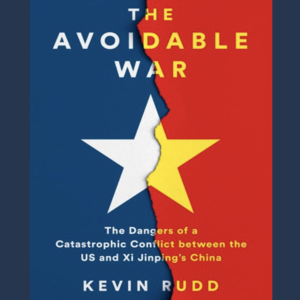The Avoidable War: The Dangers of a Catastrophic Conflict Between the US and Xi Jinping’s China

Speaker(s): Rudd, K. (President & Chief Executive Officer, Asia Society; 26th Prime Minister of Australia)
Date: 29 March 2022
Speaker Session Summary
SMA hosted a speaker session with The Honorable Kevin Rudd (President & Chief Executive Officer, Asia Society; 26th Prime Minister of Australia) as part of its SMA NDU (INSS/PRISM) Speaker Series.
It is important for actors competing in long-term strategic competition to maintain a framework that allows them to compete for geopolitical objectives, while also cooperating towards shared interests. This framework is especially important for avoiding escalation toward a mutually destructive conflict. Mr. Rudd commented that a key factor in achieving this framework is a mutual acceptance that strategic cooperation is still in countries’ best interests—even while they compete. The US and China will need to work together to form this framework as their competition for geopolitical influence continues and grows. Chinese ideological material—which is distributed by the CCP to Chinese citizens—shows that China wants to become a hegemonic power in the Asia Pacific, expand its maritime control, settle island disputes with Japan, and eventually replace the US as the preeminent global power. Moreover, China is using Huawei’s construction of 5G networks to grow its soft power influence. Mr. Rudd stated that the US’s failure to lead the world in 5G construction is a significant failure of US industrial policy, admitting that part of US’s industrial strength is allowing innovation to occur independently of US government control.
Even though China is aiming to achieve its global geopolitical objectives, the CCP is still mostly concerned about controlling its domestic population. In fact, there have been several critical articles written and opinions expressed about President Jinping’s authoritarian regime within China. Despite China’s recent advancements in modernization, the US can compete in a long-term strategic competition, which something that it has done before; the US adopted a long-term strategy during the Cold War which persisted through several presidential administrations and ended with the collapse of the Soviet Union. Ultimately, the US will need to develop a new long-term strategy to deal with an emergent China, according to Mr. Rudd.
Comments